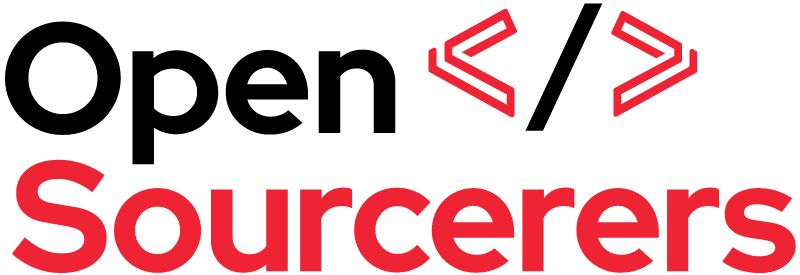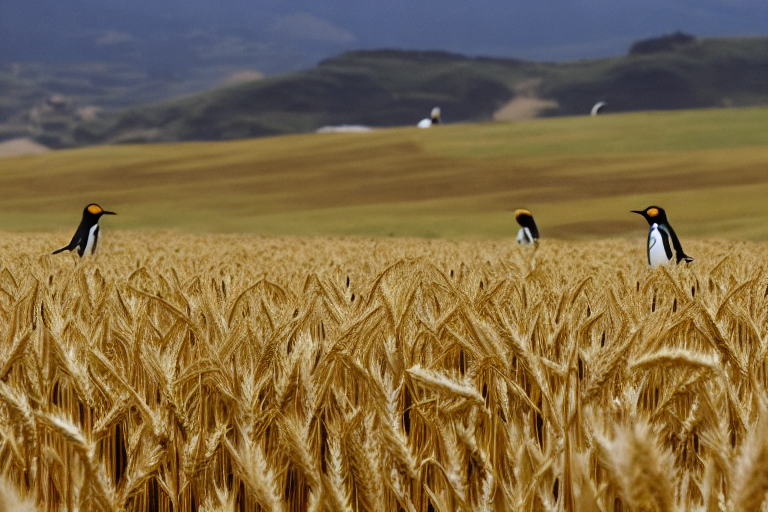In May this year, my colleague Götz Rieger came across a poster in Berlin which piqued our interest:

Open source bread? Free (libre) seeds? What is this all about? With German Thanksgiving on Oct. 2nd we want to take the opportunity to learn more about this initiative. To this end, we conducted an email interview with Iria Frommeyer, Team Lead Assistant & PR for OpenSourceSeeds:
What is OpenSourceSeeds? What problem does it solve?
The overall goal of our initiative OpenSourceSeeds is to contribute to biodiversity of agriculture. Genetic diversity of our crops is urgently needed to cope with the future challenges in agriculture: adaptation to climate change and food security. Therefore, we need seed as a commons, which are not restricted by intellectual property rights such as patents or plant variety protection and freely accessible by all. Commons need to be protected. Therefore, we have developed an open source licence.
The seed market is currently dominated by a few large corporations, largely monopolized and privatized. Through patenting and variety protection, they increasingly own the rights for cultivation, modification and distribution. They produce homogeneous varieties from few crops and for large scale distribution. They go into the opposite direction of creating biological diversity. Therefore, we need a commons-based seed sector as a second pillar to agricultural seed supply. Our open-source strategy aims to contribute to this.
What would a world without open source seed look like in 10 or 20 years?
I would like to answer the question the other way around: We hope that in 10 to 20 years, the concept of open source seed licensing agreements will have become so popular that crop diversity in fields will have increased significantly. As a result, a commons-based system is said to have developed alongside the private sector.
When I as a layperson hear about seeds & intellectual property disputes, I seem to recall patents as points of contention. In Computer Software, patents are an orthogonal problem in some countries, but the main intellectual property rules stem from copyright. How is Open Source different for seeds and plants vs. computer software?
- Do licenses apply in the same way?
- Do the four freedoms (to inspect, to use, to modify, economic freedom) apply in the same way?
Indeed, we were inspired by the open-source licenses developed in computer science which are applied to products protected by copyright. Our open source seed license is based on three rules, which parallel the four freedoms:
- Anyone may use open-source seed, grow it, propagate it and develop it further through breeding. In addition, the seed and any further developments of it may be sold, exchanged or given away within the framework of existing laws.
- No one is allowed to privatize the seed and its further developments; patent and plant-variety protection are thus excluded.
- Each recipient transfers the same rights and obligations to future users of the seed and its further developments.
Such rules you find in today’s creative commons licenses, and in many products under copyright law. But agricultural seed does not fall under copyright but under seed laws. Therefore a civil law contract, a material transfer agreement, was chosen to apply the open-source rules for seed, a contract that complements seed laws
What Software License (GPL, APL, ….) would the open-source seed license best compare to? Do I have to publish my Mum’s secret Pizza Dough Recipe if I chose flour milled from open source seeds?
No, your mother’s secret recipe remains untouched. Flour that comes from open source seeds does not have to be declared as such. After all, you can’t breed new varieties from the flour. However, the open source label makes your pizza more attractive for sale.
What elements of the open source culture carry over to OpenSourceSeeds? Does every seed have a witty project name with a backstory? A custom logo? Stickers and other Swag?
As already said: the core open-source principles include copyleft. The latter ensures that all further developments (derivatives) of an open-source licensed variety are also under open-source. We from Agrecol (see below) offer the Open Source Seed Licence free of charge and for use by everybody. The OSS license that we published is protected by a Creative Commons license and with the terms of ‘attribution’ and ‘share alike’. Everybody can use it and market OS Seed in her/his way, provided he/she complies with the license terms.
Are there seeds that are specially suited or unsuited for open source?
Yes, if the seed traits or gene sequences have already been patented, the OpenSourceSeeds license cannot apply. In addition, the variety must be new and must not have been circulated
before licensing.
Are there success stories you can share?
Of course. Any seed that we can protect from intellectual property rights is a success story. But one particular success story is our bread project. In Berlin, Cottbus and in the Rhineland, you can get open-source bread in some bakeries. The bread is made from an open source wheat (Convento C.), which is even licensed as organic (Demeter). In this way, the open-source seed reaches the consumer directly.
What can the Software industry learn from OpenSourceSeeds?
Interesting question. It would be worthwhile to get into dialogue with computer scientists.
How is OpenSourceSeed structured? Where are you based? Are the problems you are solving the same in each country you operate in?
OpenSourceSeeds is part of our NGO Agrecol, Association for AgriCulture and Ecology based in Marburg Germany. We understand ourselves as a service provider for the European seed market. We are member of the Global Coalition of Open Source Seed Initiatives (GOSSI), which has been founded two years ago. Open source seed strategies are emerging worldwide. At present, Agrecol hosts the secretariat of GOSSI.
The problems of privatization of seed are more or less the same worldwide. But legal restrictions for the introduction of open-source are different and require different open-source strategies.
How did you get the idea / how did you first hear about it?
We were inspired by commons research, namely by people such as Elinor Ostrom, Silke Helfrich and David Bollier.
We were fascinated by the idea to offer an alternative to the increasing privatization and monopolization of the seed market and going beyond simple criticism.
Most of the readers of this blog are most likely working in IT and not in agriculture, i.e. they are end consumers of any type of seed or derived product. How does Open Source Seeds relate to other (food quality) signs like Bio, Demeter, …?
As to our opinion, seed as commons and organic belong together and should be marketed together. In our work we found the “narrative open source” to be very convincing to consumers, a possibility to create awareness for the need of seeds as commons and the need to finance organic plant breeding by the whole value chain.
“Open-Source Bread” campaigns, crowdfunding for the development of an open-source rye variety and other projects could confirm this.
What can consumers do to promote the idea of open source seed?
Basically, the first thing you can do is to support our work by donating time or money. However, it is also very important to us that the principle of open source seeds spreads, so we are happy when people report about our work and our initiative. If you have a social media channel, we are always happy to get a mention and if you are an avid gardener, feel free to try our open source tomato “Sunviva” or the “Black Heart” peppers.
Where can we learn more about open source seed (Web Site, social media channels, events, …)?
We have websites in different languages (www.opensourceseeds.org,) where you can get a lot of information about our work, the license conditions and the different varieties and we also have a blog. If you subscribe to our newsletter, you will receive information about our work three times a year. On our social media channels (Instagram, Facebook, Twitter and Mastodon) you can also stay up to date with all the important events, articles and other news about open source seeds.
What did I forget to ask?
Thank you for this interview and for spreading the word about our work to re-establish seeds as a common good!
Certainly, there is a lot more to find out. 🙂
Thank you!
The image used in the title was created using Stable Diffusion 1.4, Prompt: “wheat field, penguins, landscape, hills, bushes”, 768×512, Seed 3857099852, 60 Steps, Cfg Scale 7.5, Sampler: DDIM


One reply on “OpenSourceSeeds: Solving the world’s problems using open approaches – outside the software domain”
Thanks for sharing.